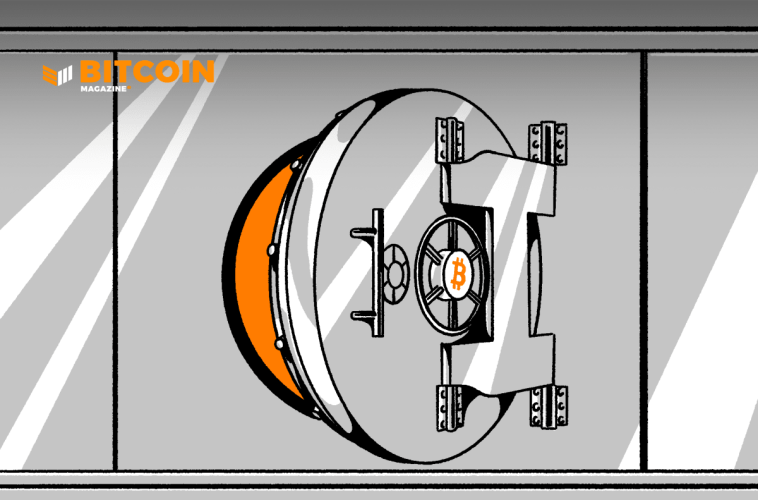If you’ve been in Bitcoin longer than a few minutes, then you’ve heard the phrase “be your own bank.” This, of course, is referring to the fact that Bitcoin is a peer-to-peer network, controlled by its users, not a central banking system. However, there is still space for banking in a Bitcoin world; though a variation from the system with which we are currently familiar.
Caitlin Long has tirelessly fought for sound banking practices especially as it relates to the dangers of leverage in bitcoin. Her work has brought positive attention to what banking in the Bitcoin space should look like.
Long’s impressive, 22-year Wall Street background combined with her candor and track record of championing sound money has made her a legend in many circles. In her home state of Wyoming, Long founded and serves as the CEO of Custodia Bank (formerly Avanti Financial Group) that works to bridge the gap between traditional banking and digital assets. Most recently, Long has been in the trenches fighting for Custodia to become a digital asset bank with a Federal Reserve account. She has been met with senseless opposition from the Federal Reserve during this process, but Long has met these setbacks with stoicism, professionalism and integrity and continues to fight for Fed access for Custodia through a lengthy court battle.
It was a privilege to interview Long about her outlook on the Bitcoin space and the future of finance, and I know you will find her responses insightful.
How did you first learn about Bitcoin and what specifically drew you to it?
I first learned about it in 2012 from alternative schools of economic thought. I was a member of an email group and started noticing people talking about it back then. For those who are not familiar with alternative schools of economic thought, Bitcoin has sparked a lot of interest within the various schools of thought. For example, those who follow Austrian School economics would generally see bitcoin as a digital version of gold due to its limited supply and decentralized nature. It’s an alternative store of value. They also would argue that, because Bitcoin is apolitical and deflationary in nature, it is a better alternative to fiat currencies that are dependent on inflationary monetary policy.
There are several other arguments to be made surrounding Bitcoin and alternative schools of economic thought, but we don’t have the time to get into those.
As a leader in the Bitcoin banking sector, you have seen the highs and lows of policy in the U.S. Do you think Custodia will eventually be granted a Fed membership and account?
I will have to let the lawsuit speak for itself regarding Custodia. However, I am optimistic regarding the policy issue generally. The people in power in Washington, D.C. today think they have the power to kill Bitcoin, which should give all of us a good laugh. Bitcoin has already died 474 deaths and it still lives — it’s just code, and 8 billion people in the world already have the capability to run code on their smartphones. When organizations make decisions out of fear, they tend to get exactly what they feared. U.S. policymakers are going to get what they fear here as a result of pushing Bitcoin services into the proverbial shadows: they will face a stronger, more globally-distributed and therefore more resilient Bitcoin network, over which they have less visibility and control over U.S. dollar on-/off-ramps than they have today.
Do you see bitcoin as an asset that will help to keep the U.S. dollar as the global reserve currency? Or as a means to an apolitical monetary system globally?
There are definitely strategic and national security benefits to the United States maintaining its leadership in this technology. Yes, dollars can be issued on the Lightning Network, for example, and the United States should embrace this. The fact that stablecoins gained as much traction as they have is a testament to the world wanting the dollar to run on internet-speed payment rails.
In your opinion, why is it important to close the gender gap in Bitcoin interest and adoption?
This is a tough question, and it is broader than just Bitcoin. It applies to the tech sector as a whole, as well as to the STEM fields generally. It’s no secret that I funded a scholarship for female engineers at the University of Wyoming in 2017 with appreciated bitcoin. In doing this, I am trying my best to encourage women to stay in the engineering field once they matriculate in an engineering major.
Aside from women speaking out, the best thing the Bitcoin space can do to attract more women, and indeed people of all backgrounds, is to keep adding blocks. Adoption will continue over time!
Afterword
There is a fair bit of irony in the fact that Long and the team at Custodia are doing things in the most compliant way possible and yet they are experiencing resistance from deep within the banking regulatory establishment. The concept of fully-reserved deposits just does not compute with banking regulators due to decades of indoctrination at the altar of debt and rehypothecation. Pioneers like Long deserve not only our respect, but also our support as they are the first ones into the breach.
This is a guest post by Becca Bratcher. Opinions expressed are entirely their own and do not necessarily reflect those of BTC Inc or Bitcoin Magazine.





